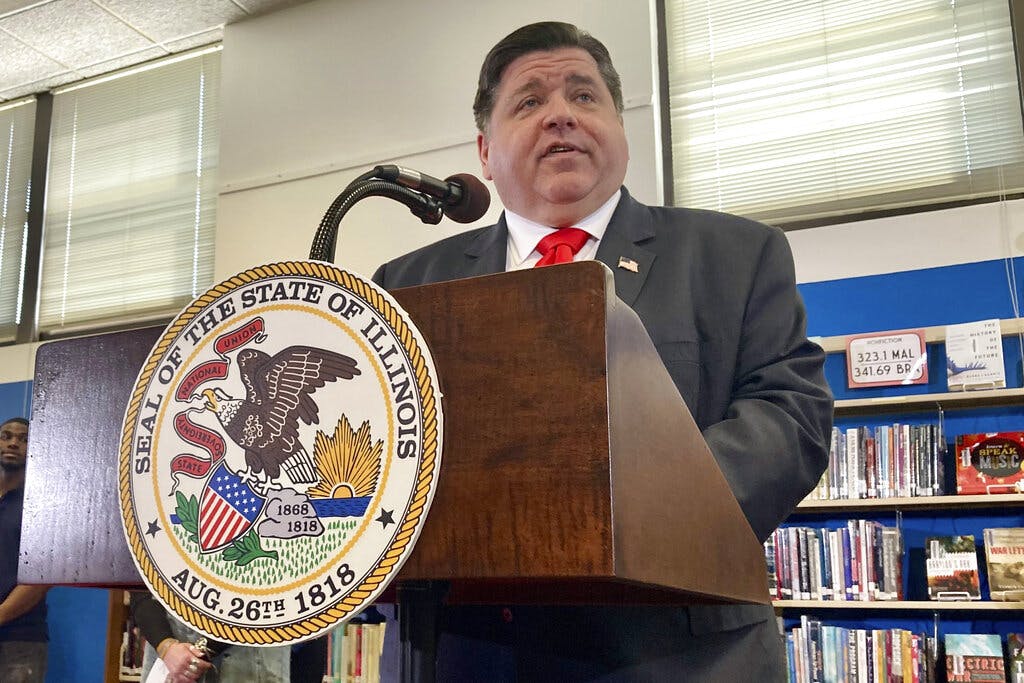Illinois ‘SAFE-T Act’ a Gift to Republicans Running Against the Crime Wave
Voters may interpret the infantile acronym of the Safety, Accountability, Fairness and Equity-Today Act as offering to make streets safer, and it will — for those who break the law.

On January 1 the “SAFE-T Act” will take effect in Illinois. Its catalog of non-detainable offenses reads like a wish list written by violent offenders and offers a weapon for Republicans trying to win voters who are victims of the national crime wave.
As Politico reported last week, Republicans are struggling to win women worried about the Supreme Court returning Roe v. Wade to the states. Crime offers a larger issue, since in blue areas legislatures have ensured that abortion law won’t change.
Voters may interpret the infantile acronym of the Safety, Accountability, Fairness and Equity-Today Act as offering to make streets safer, and it will — for those who break the law.
Commit crimes including aggravated battery, arson, burglary, drug-induced homicide or kidnapping? How about second-degree murder, meaning with malicious intent, just not premeditated? You may no longer be detained.
Threatening a public official such as a judge is also on the list, despite dire warnings about January 6 behavior becoming the norm, and the attempted assassinations of Congresswoman Gabriel Giffords, Democrat of Arizona, in 2011, and of House Republicans at baseball practice in 2017.
Forgotten by lawmakers in Illinois, too, is the assassination of one of their own: Chicago’s mayor, Anton Cermak, slain in 1933 when Giuseppe Zangara opened fire on President-elect Franklin Roosevelt.
This past weekend alone, 30 people were shot and four killed in the Windy City. Are Democratic lawmakers able to make the case for tilting justice toward the perpetrators at the expense of those victims?
Jim Durkin of the Chicago Tribune writes that the SAFE-T Act, championed by the state’s Democratic governor, J.B. Pritzker, “is a ticking time bomb set to go off at the start of next year that will have serious ramifications for law-abiding citizens and give drug cartels free rein on Illinois’ streets.”
Mr. Pritzker is America’s richest politician; he won’t have to deal with the havoc wrought by drug kingpins, traffickers, and dealers. No matter how much cocaine or fentanyl they’re packing, they won’t be held for trial as standard practice.
Now, “criminals eligible for probation upon conviction would be able to be released pending a court date,” a version of the Queen of Hearts’ upside-down justice: “Sentence first, verdict afterwards.”
As a report on Rockford’s 97ZOK Radio asks, “How would you know if someone was eligible for probation until there was a verdict? Isn’t it entirely possible during the trial that the offender could face new or reduced charges?”
The act also serves as a voter drive. It requires the Department of Corrections to “give the person information about voter registration” and provides they “may enter into an interagency contract with the State Board of Elections to participate in the automatic voter registration program.”
The law abolishes cash bail, ensuring that those charged don’t need their governor’s deep pockets to avoid prison while awaiting trial, and leaves the decision of what violent offenders are released to the whims of judges.
His or her honor must decide if the accused “poses a specific, real and present threat.” The responsibility paints a target on the backs of tough jurists — and, by the way, intimidation, like threatening a public official, is among the SAFE-T Act’s non-detainable crimes.
This brand of reform has been given a test drive elsewhere and failed. New York abolished cash bail for misdemeanors and nonviolent felonies in 2019. The state’s Democratic governor, Kathy Hochul — facing the voters in November like Mr. Pritzker — has endorsed some rewrites to bail policies after the crime spike that followed.
However, these tweaks haven’t gone far enough for New York City’s mayor, fellow Democrat Eric Adams. His requests for a special session of the legislature to restore pretrial detention in more cases have been rebuffed by the governor.
Reducing the prison population is a noble goal, but blunt tools like the SAFE-T Act give a green light to criminals, and average citizens will pay the price, whatever their positions on issues like abortion.
It’s up to Republicans to make the case for sensible law-and-order reforms, and to lay out plans to implement them across the nation. Only then will they deliver the safety a civilized society demands.

